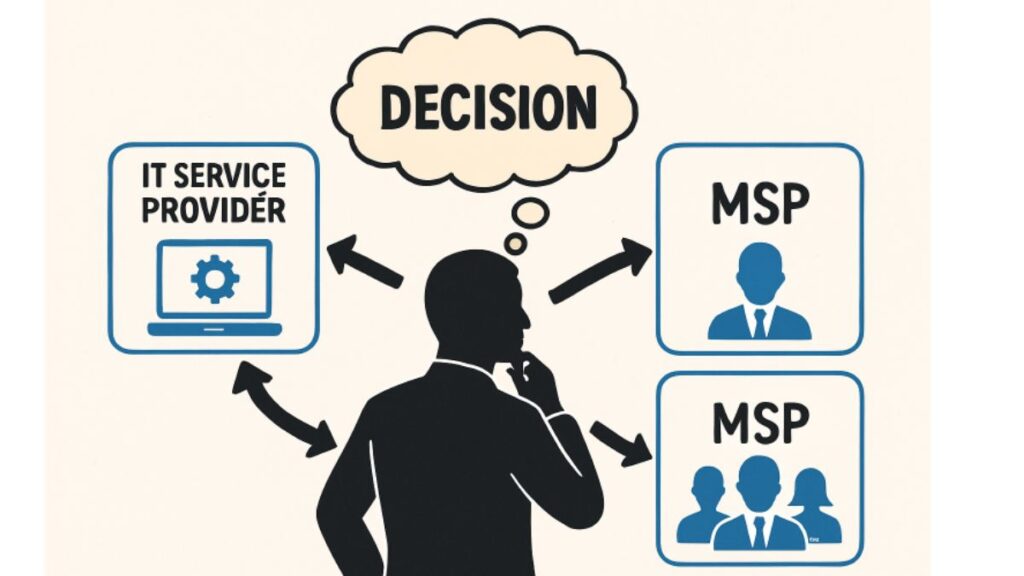Understanding Your Business Needs
Choosing the right Managed Service Provider (MSP) starts with clearly understanding your unique business and IT requirements. Assess factors such as the complexity of your company’s infrastructure, the size of your organization, and any industry-specific compliance or data privacy regulations. By mapping out these needs, you can better align with a managed service provider Chicago businesses rely on to deliver tailored solutions for ongoing efficiency and growth.
Organizations should also inventory existing hardware, software, and in-house IT capabilities. This review will clarify which services—like cloud management, cybersecurity, or helpdesk support—are essential. Planning ahead ensures that your new MSP can support your business objectives and respond to future changes in scale or technology.
Evaluating Experience and Expertise
One of the most important criteria for selecting an MSP is their industry expertise and certifications. Providers with credentials such as Microsoft Silver or a member of the Apple Consultants Network signal proven technical proficiency and a commitment to quality standards. Ask MSP candidates about their experience with businesses like yours to better gauge their ability to address your unique challenges.
Equally important, established MSPs are more likely to offer a reliable support infrastructure with experienced staff who can troubleshoot complex problems or anticipate issues before they escalate. Verifying industry-specific references and independent certifications is a reliable way to ensure an MSP’s expertise.
Assessing Service Level Agreements (SLAs)
SLAs are legally binding documents that establish the expected performance and response standards between your organization and the chosen MSP. Review these agreements to confirm they cover uptime guarantees, maximum response times for support tickets, data backup provisions, and escalation procedures for urgent IT issues. SLAs protect your interests while providing a foundation for accountability and transparency.
Prioritizing Security Measures
Security is non-negotiable when entrusting sensitive business operations and data to a third party. Comprehensive MSPs should offer layered security protocols, including endpoint protection, proactive network monitoring, and regular vulnerability testing. Evaluate how the MSP handles incident response, data recovery, and regulatory compliance to ensure they’re prepared for the evolving threat landscape.
For businesses in healthcare, finance, or other regulated industries, confirm that the MSP is familiar with relevant standards like HIPAA, PCI DSS, or GDPR. A strong security posture protects your assets and helps build trust among stakeholders and clients.
Considering Scalability and Flexibility
As your organization grows or pivots, technology requirements are bound to change. It’s crucial to partner with an MSP that can scale its offerings to keep pace. Review whether the provider can accommodate increased usage, new locations, or significant shifts in IT needs. Flexible contract terms and modular service plans let you adapt your IT support as your business evolves, avoiding lock-in on unnecessary or outdated services.
Reviewing Communication and Support
Seamless communication is at the core of a productive partnership with your MSP. Investigate how quickly and effectively the provider responds to support requests, system monitoring alerts, and service escalations. Multiple channels—phone, email, live chat, and a client portal—enable prompt issue resolution and transparent collaboration.
According to CIO.com, leading MSPs provide 24/7 support and regular status updates, reducing downtime and increasing client confidence.
Analyzing Cost and Value
While price is always a factor, organizations should take a holistic approach by evaluating both short—and long-term value. Compare transparent pricing models, including flat-rate versus tiered services, and scrutinize the details of your contract. Don’t forget to account for the cost of downtime, security incidents, and system failures that could result from insufficient support.
A detailed cost-benefit analysis will help guide your decision and ensure you achieve a return on your investment. MSPs that offer clear ROI metrics and anticipated efficiency gains typically make for more strategic partners in the long run.
Checking References and Reviews
A reputable MSP should be able to demonstrate success through client references, testimonials, and online reviews. Search for client stories in similar industries or case studies that highlight problem-solving, project delivery, and superior customer service. Pay attention to any positive and negative recurring themes across various review platforms.
Public review sites and business directories can provide unbiased perspectives and highlight trends regarding an MSP’s reliability and performance, adding more transparency to your decision-making process.
Final Thoughts
Following these guidelines for evaluating and selecting an MSP will pay dividends in operational efficiency, risk reduction, and business growth. A carefully chosen provider will be your partner in navigating the ever-changing technology landscape, empowering your organization for future success.






